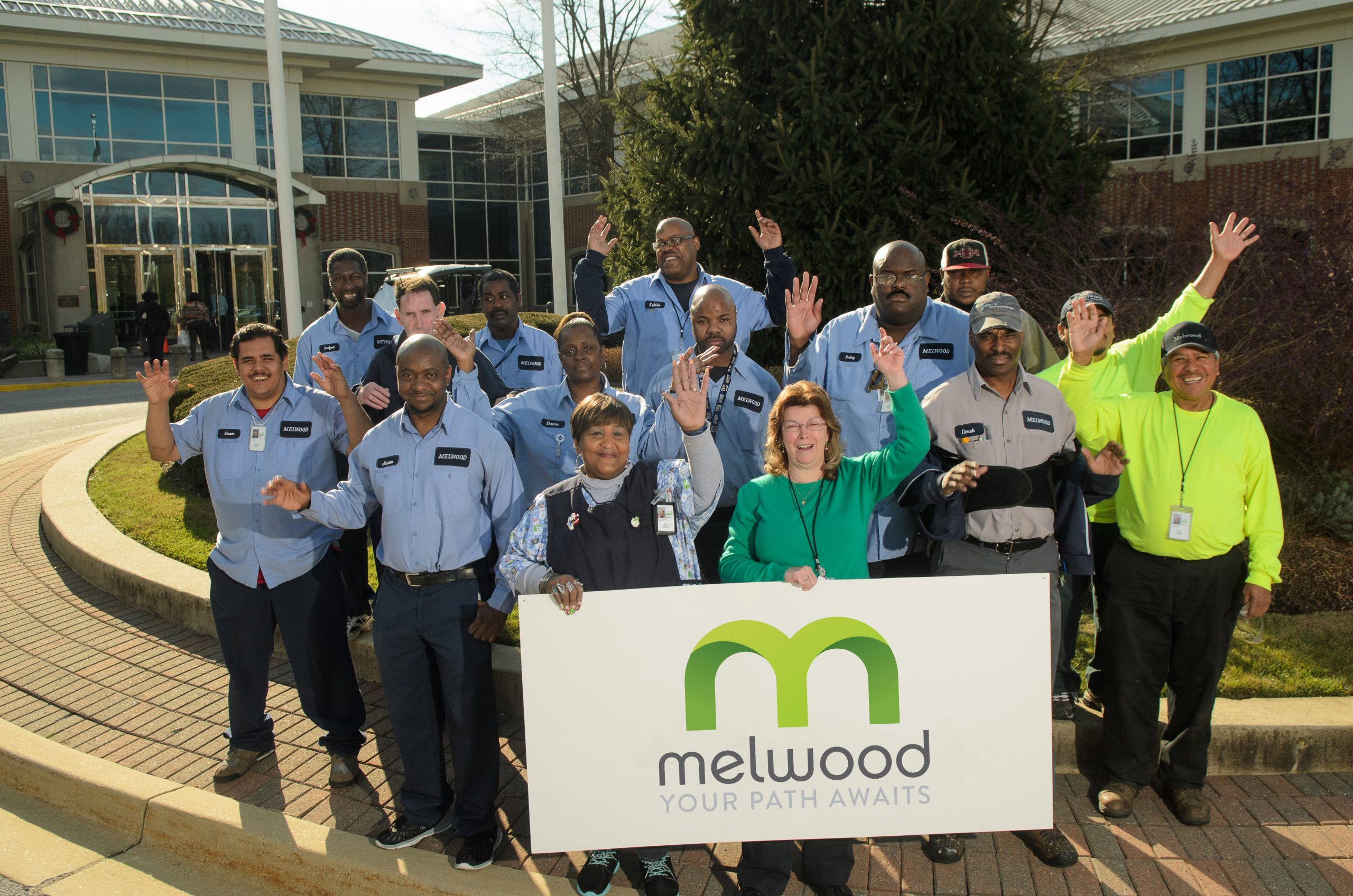
Melwood is a nonprofit that has been providing jobs and opportunities for people of differing abilities for over 50 years in the Washington, D.C. area. The organization provides employment and job training to more than 2,000 people of differing abilities a year.
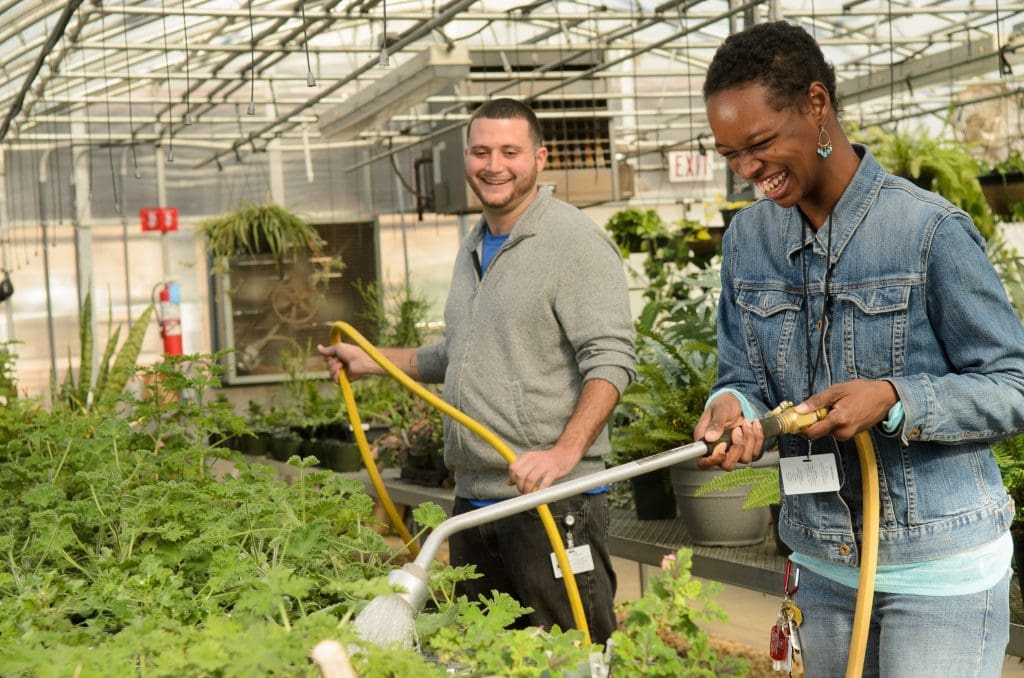
Started in 1963, a small group of parents and community supporters decided to teach plant care to young adults who majority believed were untrainable and unemployable. A fully functional farm was used as a training site for people with differing abilities to learn skills in agriculture, farming, landscaping and horticulture so they could pursue careers in the community.
Since then, Melwood has added other business services but the landscaping and horticultural work remains. Melwood’s ground team cares for a number of renowned sites in the DC area, including the USDA People’s Garden on the National Mall and the John F. Kennedy Center for the Performing Arts. Currently 58 employees are assigned to the landscaping teams, 31 of which have differing abilities. Cynthia Gervais, vice president of employee success, says they will hire another 25 employees of differing abilities for the upcoming season, March through October.
“People of all abilities are suited for landscaping if they have the physical tolerance to endure the workday,” says Marja Lindsey Reed, director of employment support services.
Training
Mark Rogers, program director for Melwood’s Landscaping and Horticultural Services, says for seasonal candidates, they train 23 people for the team each year.
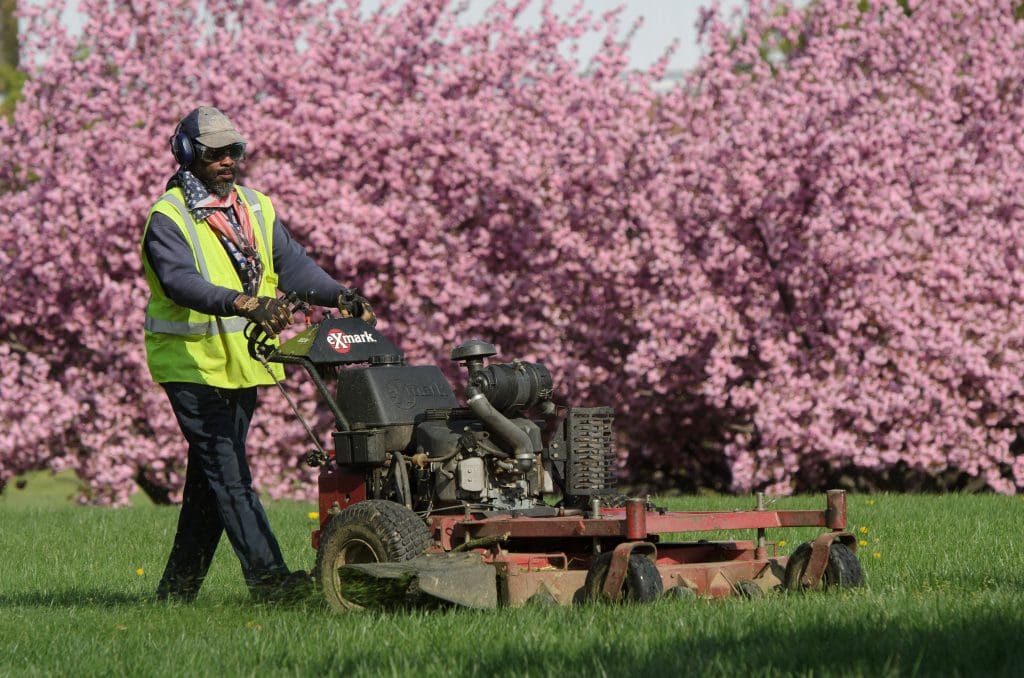
“Melwood offers an initial orientation week that includes HR, vocational support, and landscape basics to start,” Rogers says. “Then depending on the site, they get classroom instructions which may include videos of equipment, hands-on experience and a chance to work in the field before going to their assigned site. Melwood also follows up with sites and if someone needs additional help, we will work with the site to assist.”
Reed says the training can differ depending on the individual’s needs.
“Some employees need extensive training which may include a demonstration of all tasks until the employee shows they can complete the task without directions,” Reed says. “The training is personalized depending on each employee and how much they can retain at one time as well as how much they are able to lift.”
Rogers says the landscape industry is well-suited for people of differing abilities because it has a broad spectrum of tasks that can be completed during all seasons.
“Landscaping gives individuals the chance to see a project from start to finish,” Rogers says. “When they step back to look at what they accomplished it brings pride and satisfaction knowing they either did it or were part of the team. Melwood trains not only on the equipment they will use but all OSHA required safety topics.”
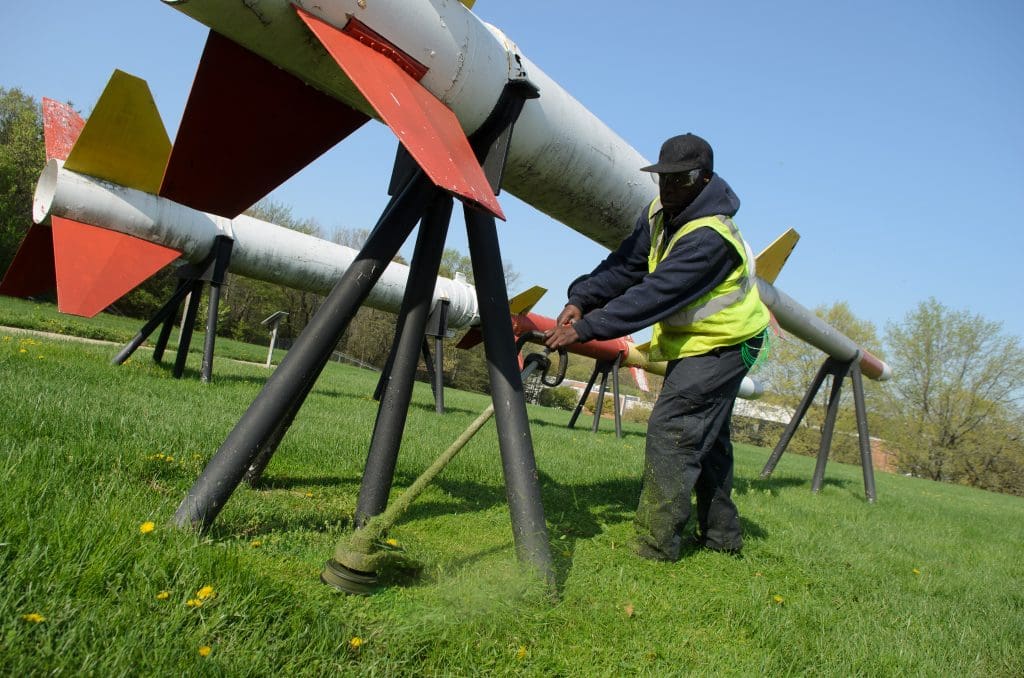
Reed adds that this sense of accomplishment also helps build their self-esteem.
“Our employees are motivated for this type of work and they enjoy doing it,” Reed says. “It also helps them with being able to focus on details and concentration. It provides guidance on how to become a self-independent individual that can work sufficiently.”
Rogers and Reed say that forming the right crews of individuals with differing abilities can help with their overall success.
“At times it has been observed that they learn quicker from their peers, build up confidence, increase communication and leadership skills and form healthy relationships in this setting,” Reed says.
Hiring Individuals with Differing Abilities
It is a common misconception that people of differing abilities cannot learn a job and work hard, or they will often make mistakes or have excessive absences, but Reed says this is not the case.

“Our employees are conscientious workers who are excited to learn new things and want to be successful,” Reed says. “It is widely accepted that organizations benefit from a diverse workforce. A variety of employee backgrounds and cultures brings a range of ideas, solutions, and proposals to a company. The same thought process should be applied to hiring people of differing abilities. Workers of differing abilities tend to be very focused and are grateful to have more independence and earn an income.”
In a 2018 report by Accenture, it looked at 45 companies that created new specialized disability policies and practices. The data revealed that those 45 companies achieved, on average, 28 percent higher revenue, double the net income, and 30 percent higher economic profit margins over the four-year period analyzed, compared to other companies in the sample.
The Department of Labor has also found that employers who embraced disability saw a 90 percent increase in employee retention.
“The advantages for employers range from tax incentives, higher productivity, improved corporate communication, higher employee engagement, lower turnover, higher employee morale, community enhancement, and more,” Reed says.
If you are considering hiring individuals of differing abilities at your company, Reed says the most important step is to first establish a diversity policy that includes all abilities and then actively recruit from this pool of eager candidates. She says having a coordinated approach that includes human resources, diversity and inclusion and the project leads from the departments in need of talent helps streamline the process.
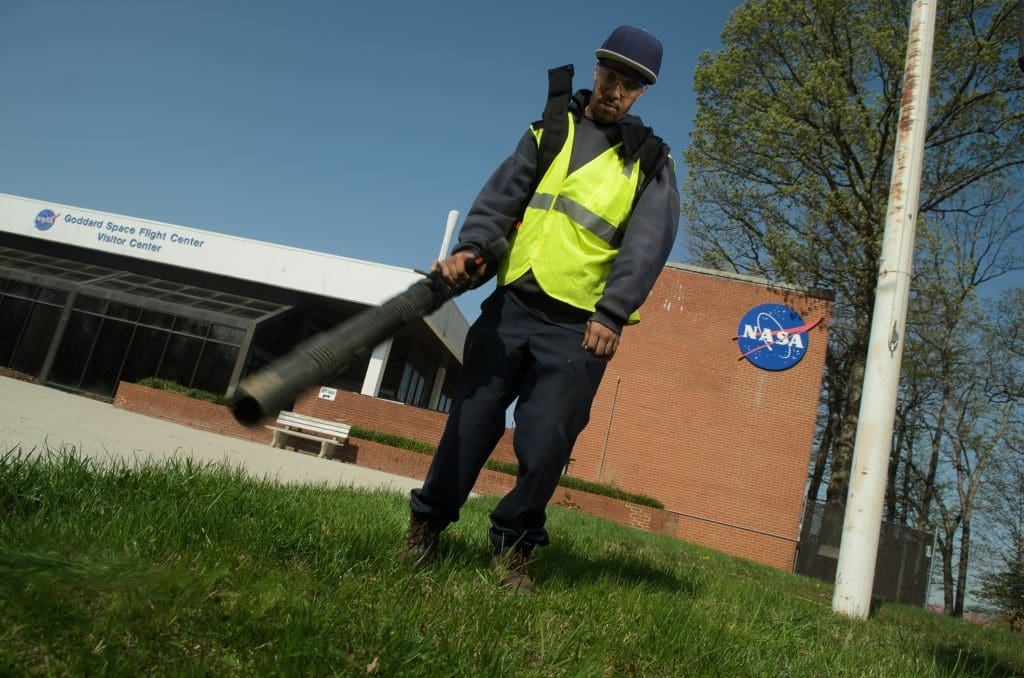
Reed says providing accommodations for employees is not as difficult or expensive as you may think.
“Recent data from the Jobs Accommodation Network shows that the cost of nearly 60 percent of accommodations is minimal, and those that require an investment usually only cost around $500,” Reed says. “This seems like a small price to pay when compared to the benefits outlined in a recent survey by the U.S. Department of Labor. The survey showed that many employers who provided accommodations found that it helped increase the retention of valuable employees while also improving productivity, cutting down on compensation and training costs, and increasing company morale.”
Reed says employers must be empathetic, patient and understand the verbal and non-verbal communication of the employee. Applicants of differing abilities should be matched with the job’s skill set. Work trials can help ensure a particular skill set before placing the applicant in a particular position.
“All employees could benefit and learn about diversity and understand how differing abilities may affect others,” Reed says. “Our employees are adults and should be treated with dignity and respect, spoken to in a regular tone and not labeled as an employee with a disability.”

